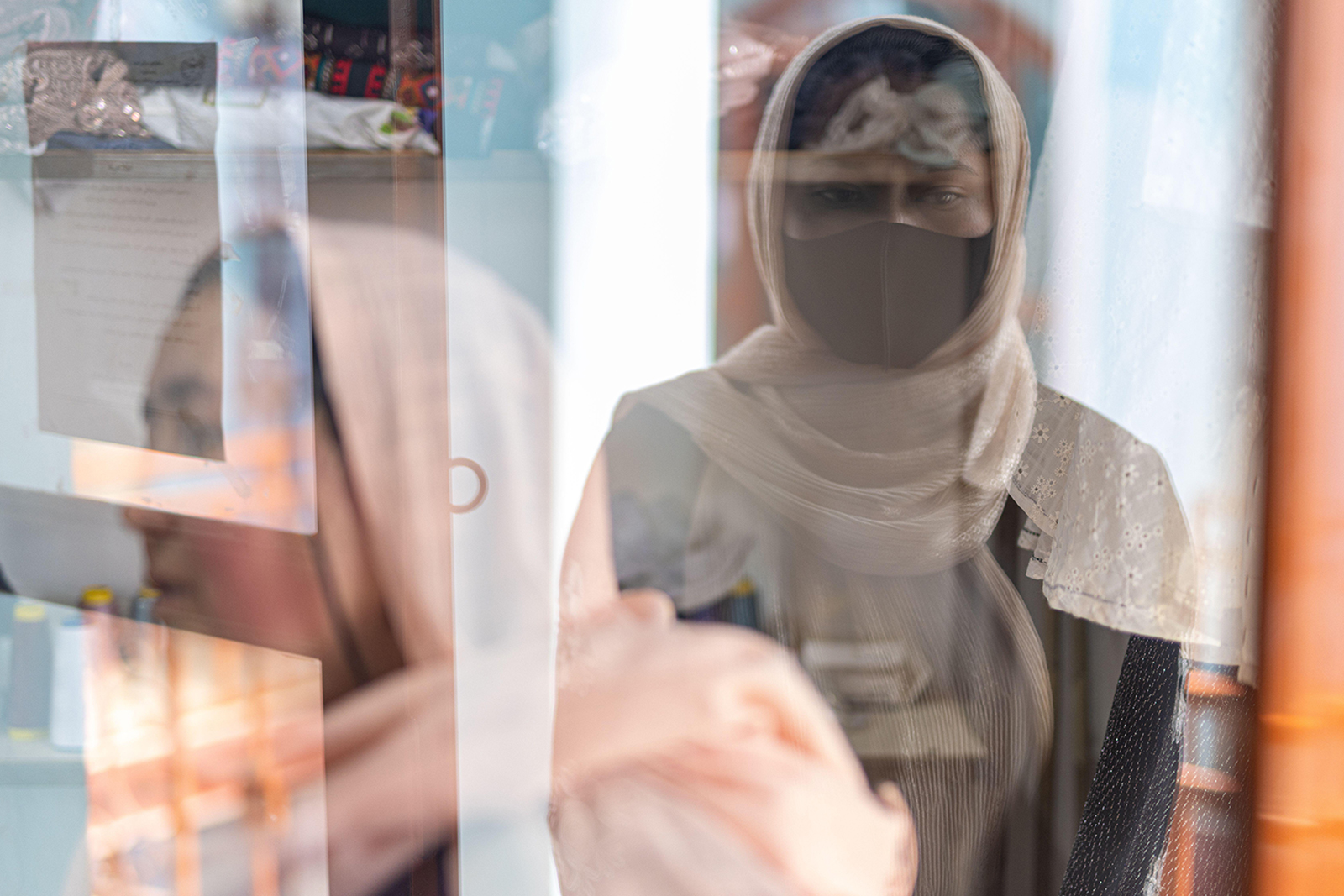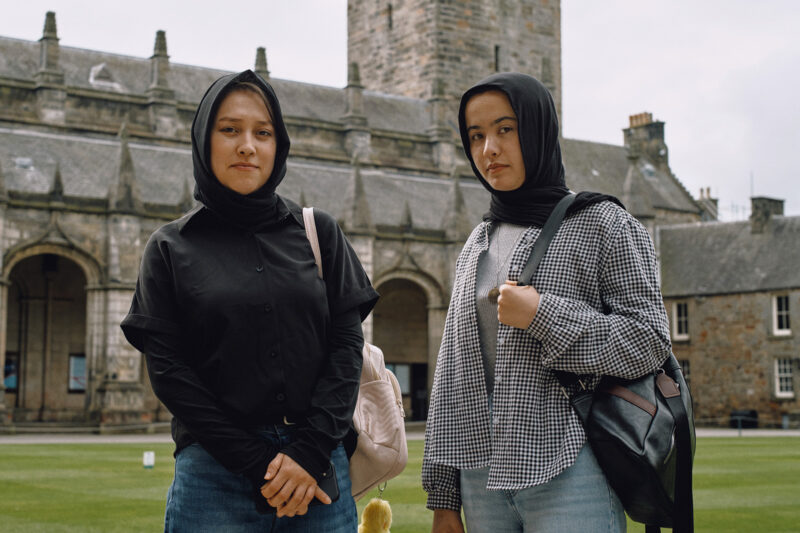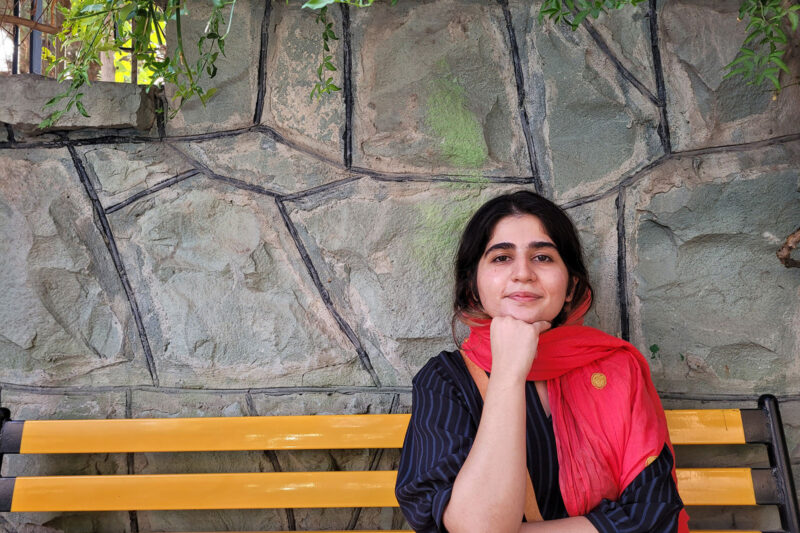Afghan women want to be heard, not pitied
The Taliban has imposed a draconian ban on female voices outside the home, but many women still refuse to suffer in silence

In late August, the plight of women in Afghanistan once again made global headlines. Outrage followed the introduction of a new national law banning female voices from being heard outside the home. Outlined in a 114-page document released by the Taliban, the ruling also requires women to cover their faces fully when out in public.
United Nations special representative for Afghanistan Roza Otunbayeva said it creates “a distressing vision of Afghanistan’s future”. UN Security Council members including the UK, the US and Japan also released a joint statement condemning the law. However, for those on the ground or with first-hand experience of the situation in the country, the news was not unexpected.
“Over the past three years, this Taliban law has been implemented in various parts of Afghanistan, so it wasn’t something new for me,” says Zahra Joya, a London-based Afghan journalist and founder of Rukhshana Media, an online news agency covering issues affecting women in Afghanistan.
“The Taliban had already prohibited women from speaking to the media in certain provinces in 2023, or, for example, they had asked female journalists to cover their faces. This law is essentially a confirmation from the Taliban themselves to those who might not have believed the women and journalists.”
“This is not a surprise at all,” agrees Manija Mirzaie, a journalist who escaped from Afghanistan in late 2023 and is now seeking asylum in Australia. “I fear even worse to come. I see myself and millions of girls like me ignored and abandoned by the world at the mercy of a brutal regime.”
Mirzaie recalls having to go into hiding in 2023 to continue her reporting. Her family has also faced violence and intimidation from the Taliban as a result of her work. “We had to change houses,” she says. “When they could not find me, my brothers and sisters were chased and beaten. This left me no choice but to flee the country.”
Within days of the new laws being announced, an online movement started. Afghan women shared videos of themselves singing in protest. Posted on social media platforms, the clips showcase popular songs of resistance.
The lyrics to one include the lines: “Their boots might be on my neck. Or their fists to my face. But with our deep light inside, I will fight through this night.”
“It reminds me of my days of activism and singing poetry in Kabul,” Mirzaie says of the videos. “I had dreams. I still want to sing and read in public again. I want all Afghan girls and women to be able to sing, talk and walk like free and equal human beings.
“Afghan women and girls are brave. We know our rights and would never give up on our fight, but we are running out of hope and feel more and more isolated and neglected by the world. In the past three years of Taliban rule, the situation has gone from bad to worse. We need support and solidarity rather than just praise from a distance.”
Muslima, 18, lives in northern Afghanistan. She recalls the moment in August 2021 when rumours of the Taliban’s takeover of areas in the country began to spread and fear gripped her hometown of Mazar-i-Sharif.
“We thought, surely they won’t come to Mazar,” she says. “But then, suddenly, around 8pm one evening we saw a video of Taliban soldiers riding their motorcycles in the city. I was just shocked. My heart broke.”
Muslima immediately ran to her closet and started putting clothes in a bag. “I begged my dad, ‘Please let’s go, let’s leave Afghanistan.’ He tried to make a joke to calm me and promised that nothing bad would happen.”
Now Muslima can no longer wear her favourite dresses. She is not allowed to go outside on her own. But it was her school’s closure six months after the initial takeover that hurt most.
“It was winter. I had just arrived at the educational centre, and there was a Taliban car outside,” she says. “My classmate didn’t want to go in and was worried they might hurt us. I told her, ‘Let’s go to class, we are late.’ Once there, I opened my bag but my thoughts were elsewhere. I felt deep in my heart that it was the day they would kick us out.”
Following a loud quarrel between the headteacher and some Taliban officials, the headteacher came to Muslima’s class to deliver the news she had feared.
“Everyone was crying silently,” she says. “We all wondered, why? Why can boys study but we cannot? Why can men work but women cannot?”
Despite the school shutdown, Muslima has been able to continue her education online from her family home in Mazar-i-Sharif. She joins virtual classes such as those offered by the Begum Academy, a Paris-based online platform that provides educational curriculums for Afghan students. Her three-hour sessions run five days a week and she is grateful to family and friends for giving her the motivation to carry on.
Muslima has also completed a number of shorter virtual courses, including the Force Your Fear public speaking training offered by Chadari, an online programme amplifying Afghan women’s stories, and Bright Future, an educational platform focusing on public speaking and leadership.
“That course really helped me,” Muslima says of the Chadari course. “My confidence and communication skills improved, I made new friends and, most importantly, I was encouraged to participate in more programmes like it.”
The annual Force Your Fear course, which is open to Afghan girls both inside and outside Afghanistan, is led by Shugofa Ayub, a public speaking instructor who left Afghanistan in 2019 and now lives in Moscow.
“When we know how to speak, we can solve many issues,” Ayub says. “You just have to find the right way to approach people. Even if someone is violent, I think there’s a way you can calm them down with your tone and voice.”
For Ayub, the highlight from each year’s course has been watching her students deliver their final speeches for their peers: “It always takes my breath away, because you can see the results. The skills, the confidence, the light in their eyes — it’s giving each other hope and being there for each other. Even though we were all apart physically, our souls were connected.”
Like Muslima and her fellow students, many other girls in Afghanistan want to continue their education and have their voices heard. Since its launch in October 2023, the Begum Academy has enrolled more than 5,700 students, with 80% of its current intake comprising female students.
“Knowledge is a book that’s never finished,” Ayub adds. “It is such a vital thing. Just giving Afghan girls the right to education – I think that’s the initial step, because an educated woman means that the family is educated, the village is educated, and the country is educated.”
 Newsletter
Newsletter













